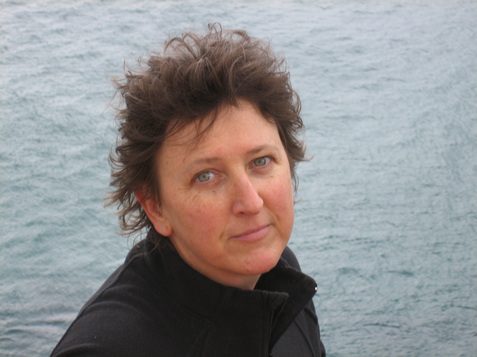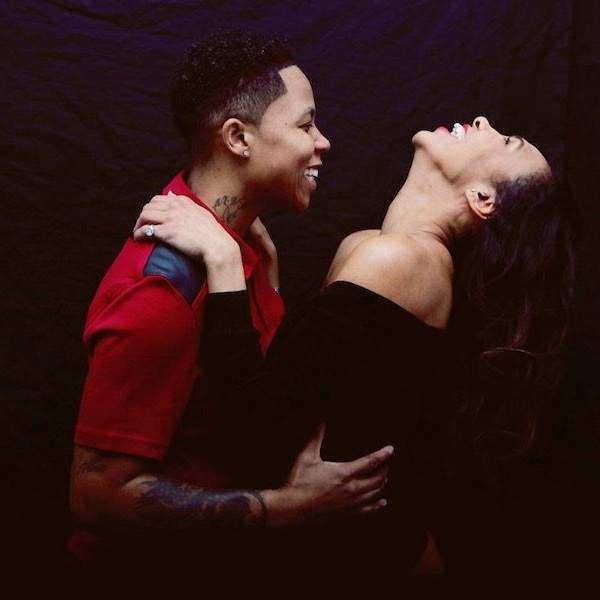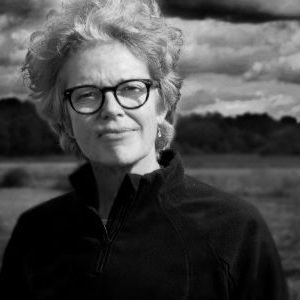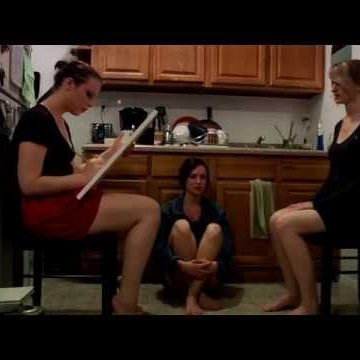
All About E is the new hugely ambitious must-see film, directed by Louise Wadley
All About E combines multiple genres and the beautiful Australian landscape to create an exciting and thought-provoking film. When E and her cover husband Matt find themselves on the run from E’s sociopathic boss, the two have no choice but to seek refuge with E’s ex-girlfriend.
Louise Wadley’s first feature full-length film is part comedy, part thriller, and part romance.
What did you find different about filming your first full-length fiction film compared to the shorts and documentaries you’ve worked on in the past?
What was different was the huge scale of everything. We had 42 locations, 39 speaking parts (including children) as well as action sequences, a dog and a plane. Not what you should try in your first feature! But I loved it. I can’t wait to make the next one. My partner who is also the producer is busy saying “Smaller, Smaller!”
Were there any scenes in the finished script that didn’t make it into the film? Is it difficult as a writer and director to cut certain scenes from the script?
YES!!! To cut scenes out of your baby is oh so painful, but don’t just take that from me as the Writer/Director. All About E was hugely ambitious for a low budget film. At some stage, it was inevitable that we had to lose some of the dialogue and even whole scenes. Because we became like a family with this film and we had been rehearsing scenes before we shot, the actors were very invested in their parts and were devastated if we had to cut favourite lines or scenes. I think everybody cried at some stage about some lines or scenes that we loved but had to let go of. It got to the stage when I would come towards them and they saw the red lines on the page they would start running away going “no, no, don’t cut me!!”.
You originally titled the film The Trouble With E. When and why did you decide to change it to All About E?
I loved the original title but we had a few years to think about it while we raised the money. Lots of people liked it but others said this is way too negative; this title would put me off seeing it. Myself and Jay the producer would spend hours arguing about the title. I knew it had to have E’s name in it. Eventually when she was on a walk with another friend they said” it’s all about her, it’s all about E isn’t it?” and we decided that’s the title, All About E. It works really well.
What was your favourite scene to film in the movie?
That’s hard! I’m really proud of what we achieved with the sex scene between the two women – it is beautiful, tender, passionate, real and steamy all in one. But I loved the comedy moments too – when E’s very obviously camp gay best friend and husband of convenience, Matt is trying to butch it up for her parents or when all the doors get slammed in E’s face by her ex-girlfriends. But maybe the most fun to film for me as a filmmaker was out in the country when the camera soars high on a crane to show the vast Australian landscape that E and Matt have to walk through. I still love that shot every time I see it.
Did you intentionally use the juxtaposition of the setting to reflect the need E feels to hide her true self from her family?
I think that you mean here in the club where E is the star DJ but that her boss Johnny makes her hide her true identity and play Spanish. I wanted to show that lesbians often have to develop masks and strategies to survive in a dominant culture. E’s character, being an “other” both as a lesbian and Arabic person in a dominant Anglo culture like Australia, means that she is often compelled to hide in some way. Unlike at home with her parents where she has to hide her sexuality, in club E seems to be free because she can be completely out as a lesbian. But in agreeing to play Spanish she plays a high price and kills a little bit of herself in doing so. It takes E the whole film to work out that she is many things and that by the end I hope people see that she has been able to bring those selves together.
Do you see a difference in the way films with lesbians, as main characters are being perceived by audiences than in past years?
Yes and no. I think all lot of people hoped that a film like Blue is the Warmest Colour winning Cannes would change things but instead the woman who wrote the book it was based on disowned the film version because she thought it was so far from what she had written in her portrayal of lesbians. But then when you see a hugely varied audience enjoying a fresh and exciting film like Desiree Akhavan’s Appropriate Behavior it gives you hope that things are changing. But generally, I think films are still a way behind something like Television series, which are streets ahead. Orange is the New Black is just one example where lesbians are just part and parcel of the whole narrative. I am hoping that films catch up to TV soon so that a character being lesbian is just a part of who she is not the whole deal.
What message do you want the audience to gain from this film?
That it’s ok to be yourself even if that is not how other people see you and that you have to decide who you are, not let other people tell you how you should be, whether it is your family or your friend or your girlfriend.



